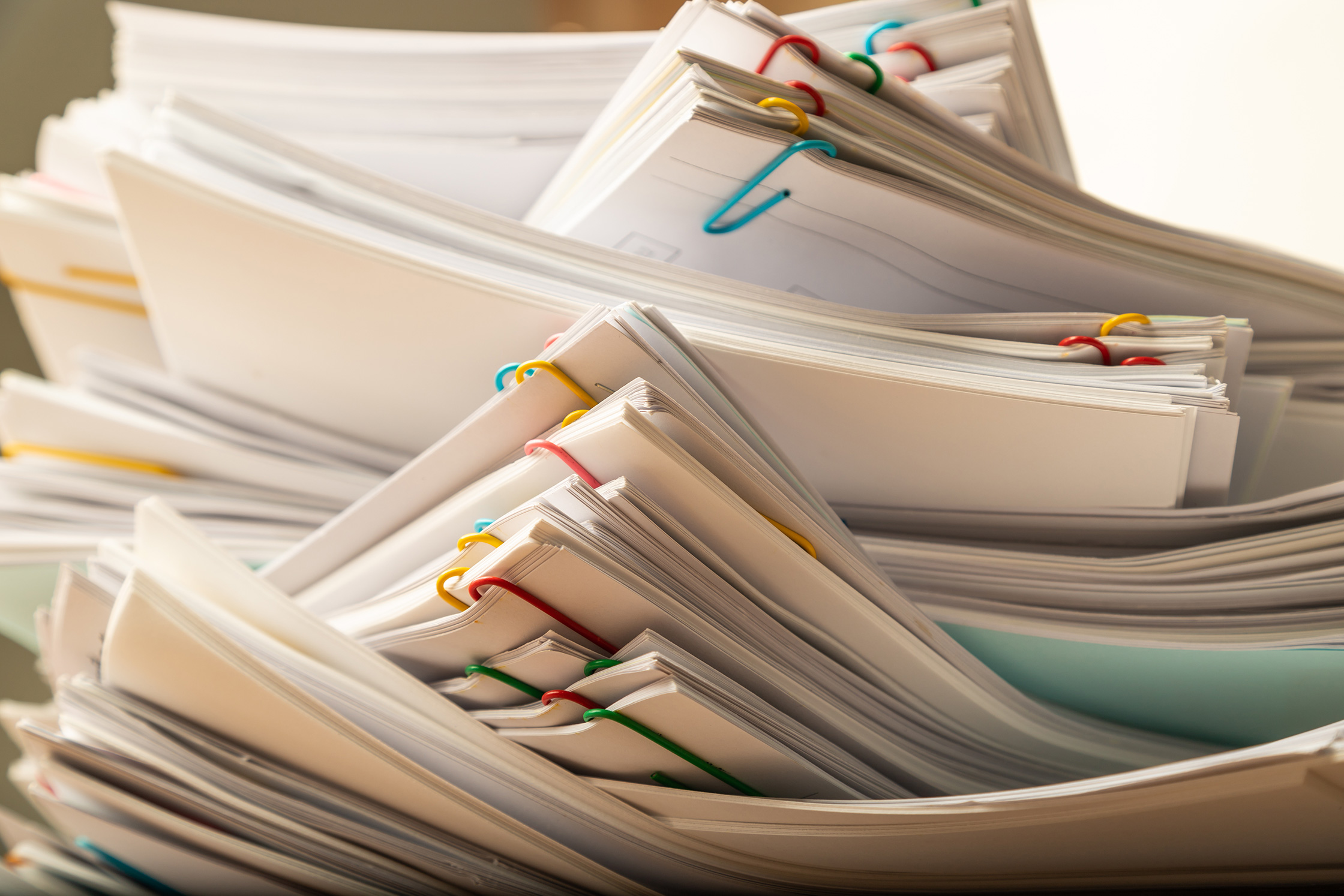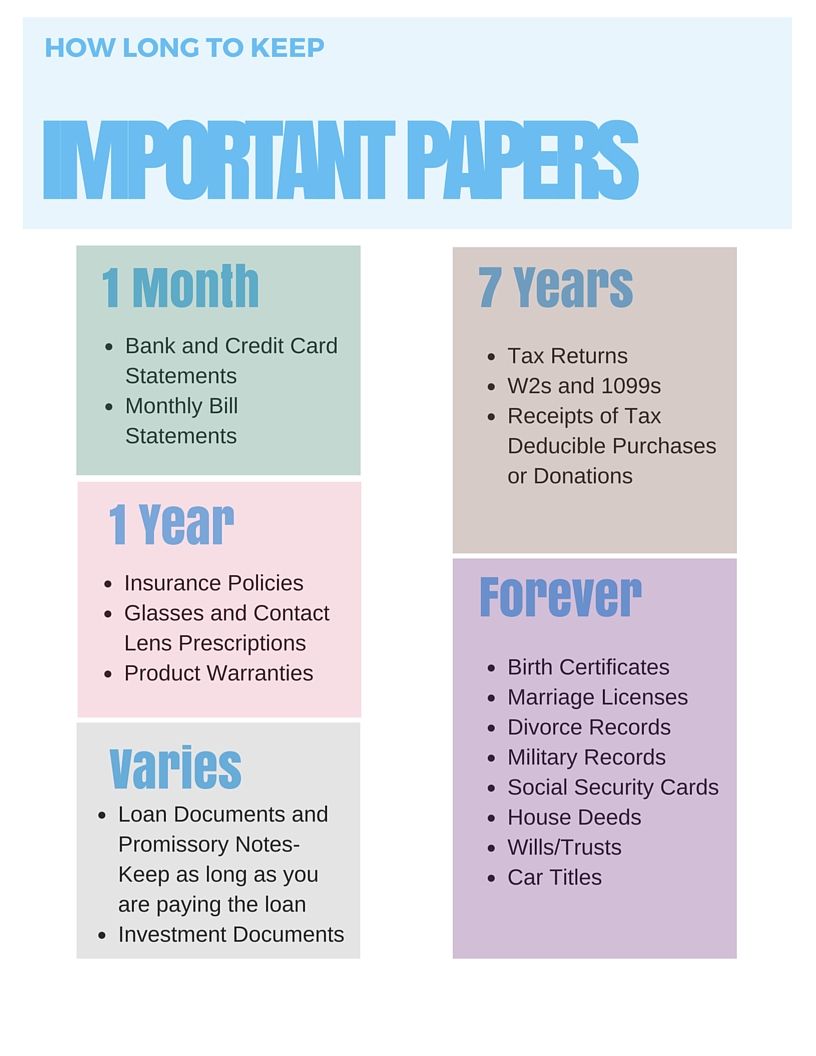7 Must-Know Tips on How Long to Keep Paperwork

Keeping paperwork in an organized manner is something that most people need to take care of, but few truly manage well. From tax returns to medical records, knowing how long to keep paperwork can save you from future headaches, potential legal issues, or even financial penalties. Here, we delve into 7 essential tips to guide you through the maze of documents and tell you when it's time to let go.
Understanding Legal Requirements


First things first, let’s address the legal obligations regarding document retention. Various laws dictate how long different types of records need to be preserved.
- Tax Documents: The IRS recommends keeping tax records for at least three years. In case of fraud, there’s no statute of limitations.
- Medical Records: Generally, maintain these for at least 10 years after the last treatment for adults, and until age 23 for minors.
- Employment Records: For federal contractors, records related to affirmative action must be kept for two years.
📜 Note: Some records, like deeds or wills, should be kept indefinitely.
Identify Your Personal or Business Needs

While legal requirements form the foundation, your personal or business needs can extend the life of some documents:
- Home Improvements: Keep records as long as you own your home. They can be useful for calculating capital gains or home equity.
- Loans and Mortgages: Retain copies of loan documents until the loan is paid off.
Sort Documents by Category

| Category | Documents | Typical Retention Period |
|---|---|---|
| Financial | Tax Returns, Receipts, Bank Statements | 3 to 7 years |
| Legal | Contracts, Warranties, Certificates | As long as active or necessary for warranty claims |
| Healthcare | Medical Records, Bills | 10 years or indefinitely for chronic conditions |

Secure Storage Options


Security is paramount when dealing with sensitive information:
- Fireproof Safe: For critical documents like deeds or passports.
- Bank Safe Deposit Box: Useful for items that are not needed frequently.
- Digital Backup: Scan documents and keep backups on secure, encrypted storage.
Regular Review and Purge

Establish a routine to review and purge unnecessary paperwork:
- Mark your calendar for an annual document review.
- Shred sensitive documents to prevent identity theft.
🔍 Note: It's good practice to scan important documents and keep digital copies, which makes retrieval easier.
Ease of Access and Organization

Knowing where everything is located is as important as knowing when to keep it:
- Label clearly and categorize documents.
- Use file folders, expandable files, or a filing cabinet system.
Know When to Go Paperless

As digital solutions become more robust, going paperless is a viable option for some documents:
- E-statements: Opt for digital statements for regular bills.
- Cloud Storage: Platforms like Dropbox or Google Drive offer secure, accessible document storage.
Managing paperwork doesn't need to be daunting. With a clear understanding of legal requirements, personal needs, and efficient sorting and storage solutions, you can keep your life well-organized. Remember, while these tips offer general guidance, your specific needs might require variations. The key is to strike a balance between keeping necessary paperwork and decluttering to avoid unnecessary document overload.
How can I digitize my documents for better storage?

+
Scan your documents using a high-quality scanner or smartphone app. Store the digital files in a secure, encrypted cloud service or external hard drive.
What should I do with old documents that aren’t needed anymore?

+
Shred any document containing sensitive information to prevent identity theft. Non-sensitive documents can be recycled.
Is it safe to store documents in a digital format?

+
Yes, as long as you use encryption, secure cloud services, and keep backups. Digital storage can often be more secure than physical storage if handled correctly.